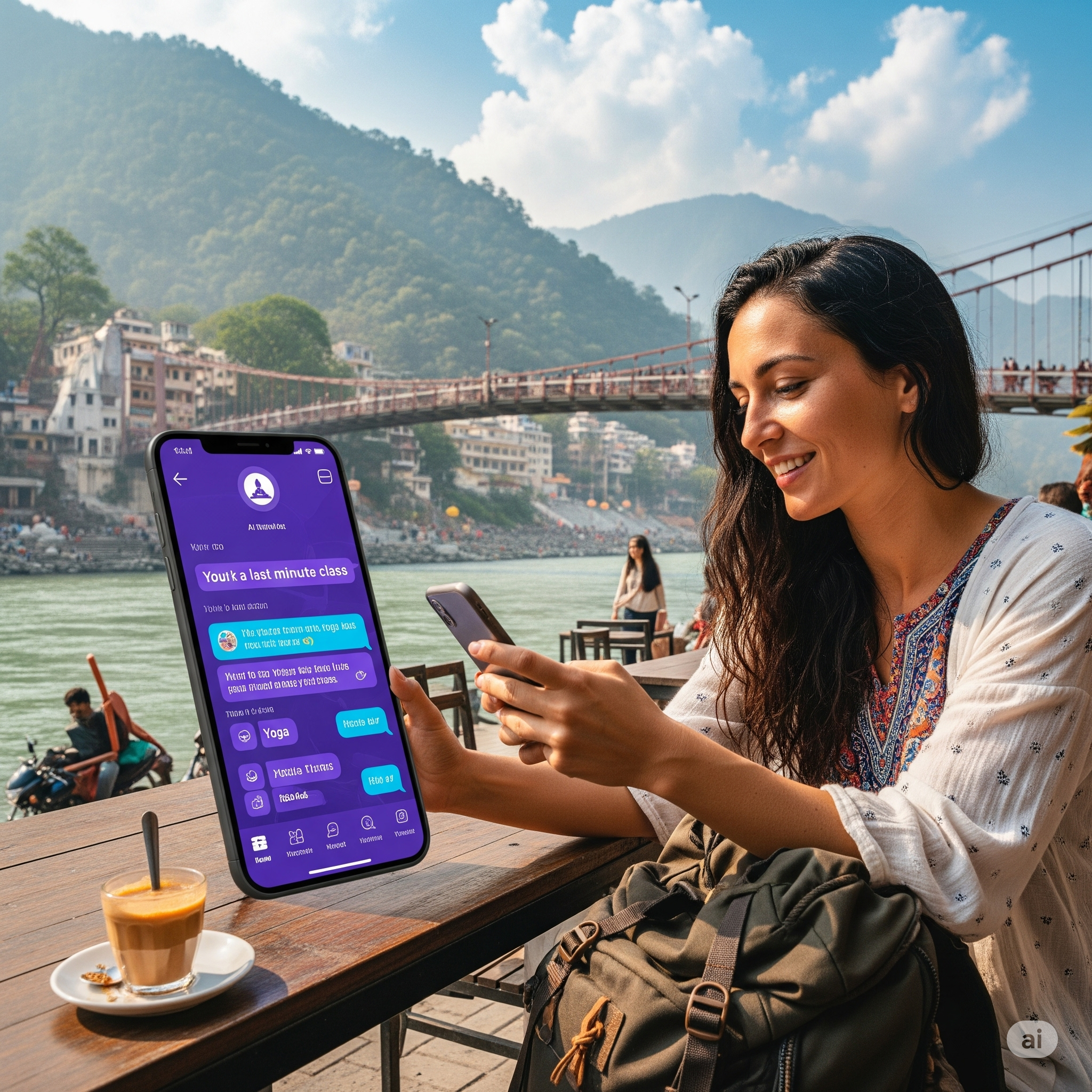We’ve all been there. You’re trying to change a flight booking and find yourself stuck in a seemingly endless phone queue, listening to hold music. Or perhaps you’re already on your trip, trying to get a simple answer about tour availability from a busy hotel front desk. These moments of friction, big and small, can taint an otherwise perfect travel experience. But what if you could get an instant, intelligent answer to your question at any time of day, from anywhere in the world? This isn’t a far-off dream; it’s the new reality powered by AI tourism customer service.
The tourism industry is rapidly embracing artificial intelligence, not as a gimmick, but as a fundamental tool to enhance every touchpoint of the traveler’s journey. We are moving far beyond the traditional concierge model. Instead, we are entering an era where sophisticated AI can provide personalized, 24/7 support that anticipates needs and resolves issues proactively. From intelligent AI travel bots that act as personal travel agents to complex systems that analyze guest feedback at scale, AI is setting a new standard for what exceptional service looks like in the modern age of travel.
What is AI Tourism Customer Service, Really?
At its heart, AI tourism customer service is the application of smart technologies—like machine learning, natural language processing (NLP), and automation—to manage and dramatically improve interactions with travelers. It’s a broad field that covers everything from the chatbot that answers your initial queries on a travel agency’s website to the AI that analyzes your post-trip review to understand your sentiment. The key goal is to deliver faster, more accurate, and more personalized responses than ever before.
A common misconception is that AI aims to replace human customer service agents. The reality is far more collaborative. The true power of AI in this context is its ability to augment human capabilities. By automating the high-volume, repetitive tasks (like answering “What are your check-in times?” for the thousandth time), AI frees up human agents to focus on complex, high-emotion, and high-value interactions. It’s about combining the efficiency of a machine with the empathy and problem-solving skills of a human expert.
How AI Tourism Customer Service is Revolutionizing Travel
The integration of AI is not just an incremental improvement; it is a complete game-changer for travelers and tourism businesses alike. It addresses some of the industry’s longest-standing challenges with elegant, tech-driven solutions.
24/7 Availability and Instant Responses
Travel doesn’t operate on a 9-to-5 schedule. Travelers are spread across different time zones, planning trips, and facing issues at all hours. AI tourism customer service provides an “always-on” support system. For example, a tourist from New York planning a trip to Rishikesh can interact with an AI travel bot at 3 AM their time to ask about local transport or book a river rafting tour for their arrival. They get an instant, accurate answer without having to wait for business hours in India, creating a seamless and satisfying planning experience. This round-the-clock availability is something traditional customer service models simply cannot offer affordably.
The Power of Personalization in AI Tourism Customer Service
Today’s travelers don’t want generic service; they crave personalization. They expect brands to remember their preferences and tailor experiences to them. AI excels at delivering this personalization at a massive scale. By connecting to a customer’s booking history and profile, an AI system can provide uniquely relevant support. Imagine an AI travel bot that not only helps you book a tour but also suggests a specific start time to avoid the crowds, because it knows you previously left a review praising “quiet, peaceful experiences.” This level of tailored interaction makes a traveler feel understood and valued, fostering deep brand loyalty.
Practical Applications: AI Tourism Customer Service in Action
The applications of AI in the tourism sector are both practical and incredibly diverse. Companies are using this technology to streamline operations and create moments of delight for their customers.
- Intelligent AI Travel Bots: These are the frontline soldiers of AI tourism customer service. They live on websites, in WhatsApp, and on Facebook Messenger, helping users find flight deals, book hotel rooms, and complete transactions without ever leaving the chat window.
- Sentiment Analysis of Guest Feedback: AI algorithms can sift through thousands of online reviews on sites like TripAdvisor or Google in minutes. They can identify key themes, gauge overall sentiment (positive, neutral, negative), and flag recurring issues (e.g., “slow check-in,” “uncomfortable beds”) for management to address.
- Proactive Issue Resolution: The best customer service is the kind you don’t even have to ask for. AI systems can monitor for potential travel disruptions. For instance, if a flight is delayed, an airline’s AI can automatically send a notification to the affected passengers, along with a link to rebook on the next available flight, turning a moment of stress into a demonstration of excellent service.
Case Studies: Companies Excelling with AI in Tourism
It’s one thing to talk about possibilities, but many industry leaders are already reaping the rewards of investing in AI tourism customer service.
Case Study 1: Expedia’s Virtual Agent
Expedia Group, a global travel giant, handles millions of customer interactions every year. To manage this volume, they developed a powerful AI-powered virtual agent. This chatbot is capable of handling the most common customer service requests, such as checking an itinerary, cancelling a booking, or confirming a reservation. As detailed in reports on AI implementation, Expedia’s bot successfully resolves the majority of these queries without needing to escalate to a human agent. This has resulted in a massive reduction in call center costs and, more importantly, has allowed customers to get instant resolutions, which a HubSpot study confirms is a top priority for consumers.
Case Study 2: KLM’s “BlueBot” (BB)
KLM Royal Dutch Airlines has long been a pioneer in using technology to enhance the travel experience. Their AI-powered chatbot, nicknamed “BB” or BlueBot, is a prime example of effective AI tourism customer service. Integrated into platforms like Messenger and WhatsApp, BB assists passengers throughout their journey. It can send booking confirmations, issue boarding passes, provide flight status updates, and even answer questions in over 10 languages. By meeting customers on the communication channels they already use, KLM has made travel logistics feel as simple as texting a friend, showcasing the power of well-executed AI travel bots.
Your AI Toolkit for Superior Customer Service
The great news is that powerful AI tools are more accessible than ever. Even a small tourism business, like a local guide service here in Rishikesh, can leverage AI to provide world-class service.
- ChatGPT: This versatile tool is a customer service powerhouse. Use it to draft professional and empathetic email responses, create comprehensive FAQ content to power a chatbot, or generate social media posts announcing new tours.
- MonkeyLearn: An incredible tool for understanding your customers’ voices. You can upload a spreadsheet of your guest reviews and use MonkeyLearn’s pre-built models to automatically analyze sentiment and extract key topics. This tells you exactly what to keep doing and what to improve.
- No-Code Chatbot Builders: Platforms like Tidio, Intercom, or Chatfuel allow you to build and deploy an AI travel bot on your website in hours, not months. You can start with a simple rule-based bot to answer FAQs and scale up to more complex interactions over time.
A Beginner’s Workflow for AI-Powered Service Analysis
Ready to dip your toes into the world of AI tourism customer service? You don’t need a team of data scientists. Here’s a simple workflow:
- Identify Your Biggest Time Sink: First, figure out what customer service task consumes the most time. Is it answering the same ten questions about your tour’s difficulty level every single day via email?
- Gather Your Data: Collect a month’s worth of these emails, social media messages, or chat logs.
- Let AI Find the Pattern: Copy and paste this data into a tool like ChatGPT and ask a simple prompt: “Based on these customer inquiries, what are the top 5 most frequently asked questions?”
- Automate and Elevate: Use the AI-generated list to create a prominent FAQ section on your website or to program a simple chatbot. Automating these answers can save you hours each week, allowing you to focus on creating better tour experiences. For more inspiration, check out this guide to automation from Zapier.
The Future of AI Tourism Customer Service
The journey is just beginning. The future of AI tourism customer service is moving towards even more integrated and predictive systems.
The Hyper-Personalized AI Travel Assistant
Soon, we will see the evolution from reactive AI travel bots to proactive, holistic travel assistants. As noted in industry reports from sources like McKinsey, the future is in predictive personalization. Imagine an AI that not only books your adventure in Rishikesh but also monitors the weather. If it predicts heavy rain, it could proactively message you with a suggestion to reschedule your outdoor trek and instead book a session at a renowned local yoga ashram.
Voice, AR, and Immersive Support
The way we interact with AI will also evolve. Voice commands will become more common, allowing for hands-free assistance. Augmented Reality (AR) will offer another layer of service. Imagine pointing your phone at the Laxman Jhula bridge and having an AR overlay provide its history and significance, narrated by an AI in your chosen language. This is the future: immersive, intuitive, and incredibly helpful AI tourism customer service.
In conclusion, AI is not just a tool; it’s a transformative partner for the tourism industry. By handling the routine, it allows businesses to be more human. It provides the data that allows for truly personal touches. For any tourism business looking to thrive in the coming decade, embracing AI tourism customer service is not just an option—it’s the ticket to the future.
Beat Writer’s Block Forever: The Ultimate Guide to AI Creative Writing
Your Next Plot Twist is One Click Away: The Guide to AI Storytelling



